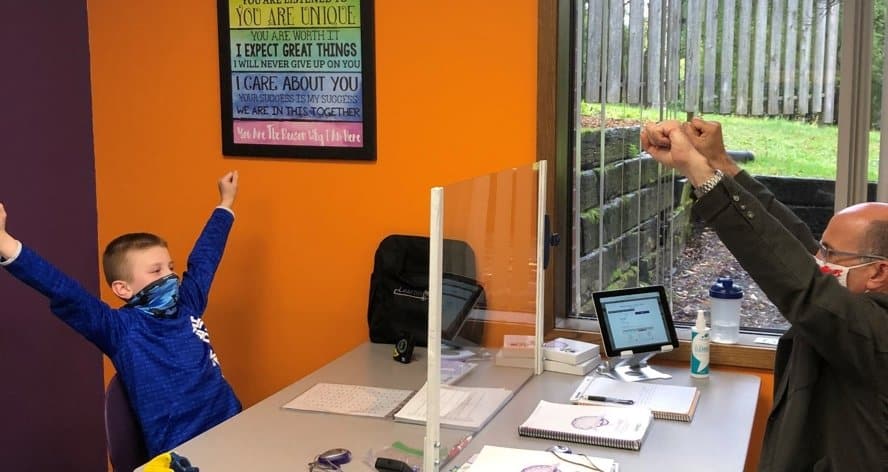Tutoring versus Brain Training, which is the right solution for you child?
As parents, we want our children to grow in confidence and experience success. Whether it is clapping for them as they say their first words, praising them as we let go of the back of their bike or cheering for them on the sidelines of the high school soccer game, we are our children’s biggest fans.
Truly, this desire to watch our kids grow, learn, and succeed flows into all areas of life.
If learning is difficult for your child, as a parent you’re searching for the best way to help them. There is an effective solution for your child and that solution depends on where their struggle lies. Follow along with me as we take time to explore the differences between two great options—tutoring and brain training.
What is tutoring?
For your child to learn successfully, they must be presented with educational content and utilize strong cognitive skills to process that content.
Whether it is due to prolonged sickness, death of a loved one, the impact of remote learning or a substitute teacher, there are several reasons your child may fall behind in school. Tutoring is a great way to help your child get caught up. A tutor will instruct your child on educational content they missed or reinforce material that did not stick the first time because of a distraction in their environment. Tutoring can help boost your child’s confidence in school and offers many benefits.
Tutoring focuses on delivering content.
What is brain training?
In addition to being presented with educational content, your child must also be able to absorb and process the content they receive. This is where cognitive skills come into play.
Cognitive skills include attention, working and long-term memory, logic and reasoning, auditory processing, visual processing, and processing speed and contribute to this important synthesis of information. When one or more of these cognitive skills are weak, learning is difficult.
- Have you tried tutoring for your child, but they continue to struggle?
- Does this struggle exist across multiple disciplines or school subjects?
- Is reading comprehension difficult?
- Does your child seem to work harder than their peers to get good grades?
If you answered “yes” to any of these questions, your child may be struggling with weak cognitive skills and may benefit from brain training.
Brain training is also beneficial for children who have been previously diagnosed with ADHD, speech and language disorders, TBI, dyslexia or are on the autism spectrum.
If your child is struggling with learning and you’re trying to decipher the root of their struggle, we suggest our free Brain Quiz.
How brain training works
First, your child will take a thorough cognitive skills assessment that will highlight weak cognitive skills and areas we will focus on in our training. Then we will create a program tailored to your child’s unique needs. This program targets weak parts of your child’s brain and helps stimulate them through challenging and engaging one-on-one mental exercises.
Our programs are intensive. Our brain trainers meet with your child in-person, virtually or hybrid for one hour each day several times per week for 12-34 weeks, depending on which program they participate in. Upon completion of their customized training, your child will take a second cognitive skills assessment so we can measure their progress.
Results vary but we know that, on average, our clients gain about 15 points in IQ score, “move up” an average of 30 “places” out of 100 in memory skills and that struggling readers gain more than three years in reading skills after about 72 hours of brain training.
If you’d like to learn more about how we can partner with you to help your child strengthen their cognitive skills, learn easier and grow in confidence, contact us here.







